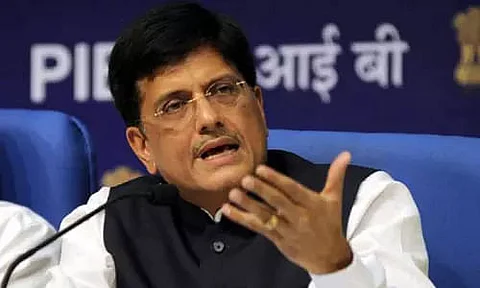
- Home
- Live Blog
- Breaking News
- Top Headlines
- Cities
- NE News
- Sentinel Media
- Sports
- Education
- Jobs

NEW DELHI: Union Railway Minister Piyush Goyal today informed the Lok Sabha that the Indian Railways will never be privatized, however, he asserted that private investment should be encouraged for more efficient functioning.
He also said that public and private sectors will have to work together which will led to the progress of the country while generating employment opportunities.
"Indian Railways will never be privatised. It is a property of every Indian and will remain so," the minister quoted, adding that it will remain a government entity.
Speaking about the causalities, the Rail Minister informed that since last two years no death of any passenger due to a rail accident was reported. "The railways have been putting enormous focus on passenger safety," Goyal said while replying to a discussion on Demands for Grants for Railways.
We are focusing on passenger safety. I am happy to say that there has been no passenger death in past two years. The last death due to train accident happened in March 2019," the minister stated.
Goyal further informed that the Modi Government has hiked investment in the Railways to ₹ 2.15 lakh crore in 2021-22 fiscal, from ₹ 1.5 lakh crore in 2019-20 fiscal.
Earlier, there has been speculation that the Government will privatise the Railways, however, clearing the air Goyal said that the national transporter will not be privatised and it will always be with the government.
"Many of the leaders and MPs have alleged that the government is planning to corporatize the Indian Railways and we are doing disinvestment in the national transporter," said Goyal while clarifying that it will remain as the property of the Indian government
Last year the Ministry of Railways has invited Request for Qualifications (RFQ) for private participation for operation of passenger train services over 109 Origin Destination (OD) pairs of routes through introduction of 151 modern trains. The objective of this initiative was to introduce modern technology rolling stock with reduced maintenance, reduced transit time, boost job creation, provide enhanced safety, provide world class travel experience to passengers, and also reduce demand supply deficit in the passenger transportation sector.